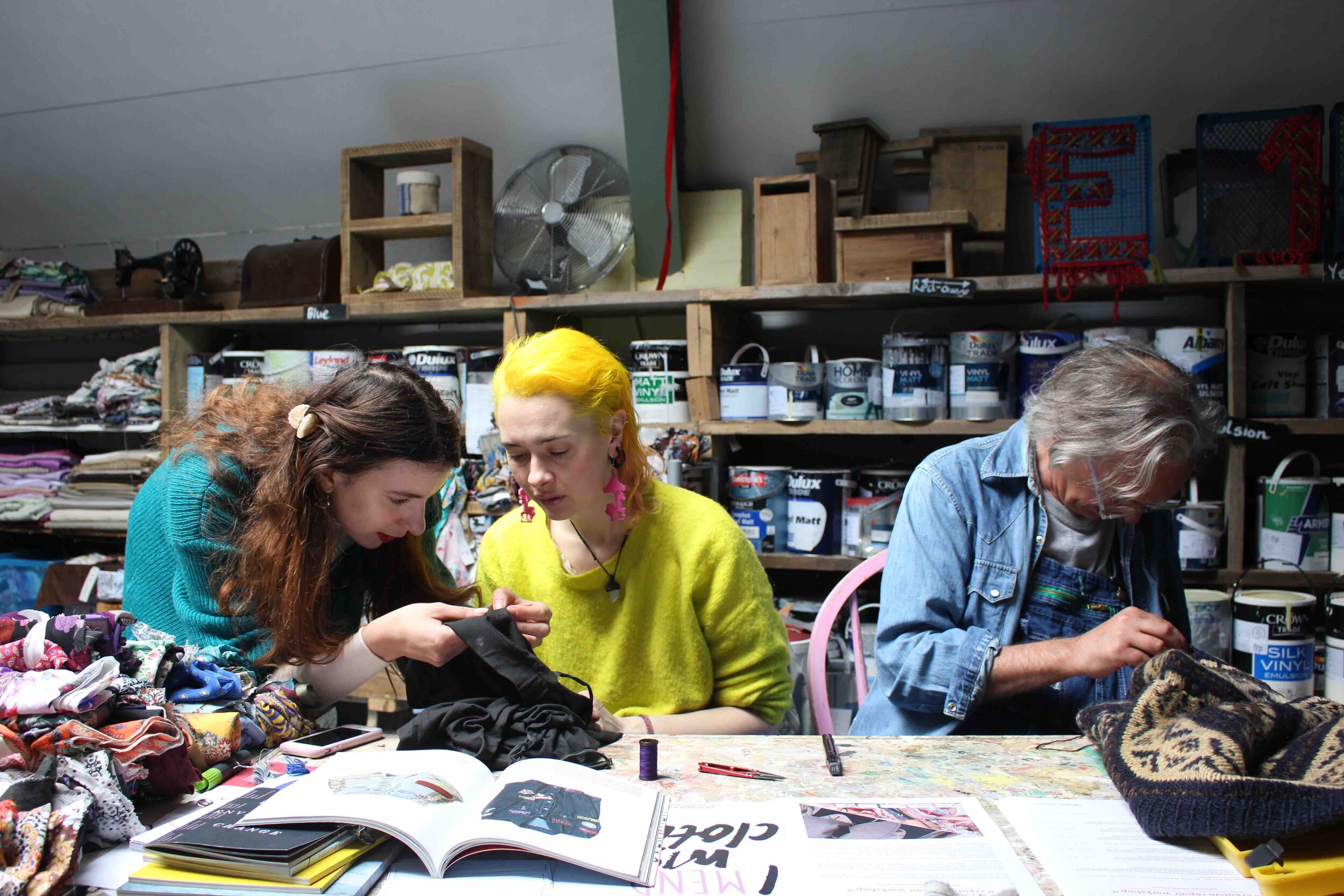Can fashion change the world?
By BEL JACOBS
With its bleak record on social justice, environmental wellbeing, animal cruelty and waste, it’s hard to see a future for fashion - in its current incarnation, at least - that works for people and planet. But if there’s one figure who believes not only that fashion can change but that it can also be a force for good, that’s Francesco Mazzarella.
Post-Doctoral Research Fellow at Centre for Sustainable Fashion (CSF), Mazzarella’s research explores ways in which design activism can create counter-narratives towards sustainability in fashion. As part of the Making for Change: Waltham Forest project, a programme of community engagement, design research, and educational activities, he explores the potential of using fashion and making as catalysts for positive change.
“In the face of the complex challenges posed by the current global environmental, economic and social crises, designers are adopting more sustainable practices and social responsibility in their work, playing the role of activists to challenge the unsustainable status quo,” says Mazzarella, excitedly. “I focus on design activism, using my skills and expertise to build communities of practice with a shared vision towards activating positive change.”
The term is not common parlance. “Professor Alastair Fuad-Luke defined [design activism] as ‘design thinking, imagination and practice applied knowingly or unknowingly to create a counter-narrative aimed at generating and balancing positive social, institutional, environmental and/or economic change’,'“ explains Mazzarella. “I adopt it as an approach to rescue cultural heritage, fight social inequalities, help local economies flourish and enhance environmental stewardship.”
Waltham Forest is Mazzarella’s second iteration of these ideas; in his Loughborough Design School doctoral research project, he explored how service design can be used to help communities transition towards a sustainable future. “For the research project, I conducted case studies with two textile artisan communities, one in Nottingham, UK, the other in Cape Town, South Africa,” says Mazzarella. As a result of both cases, the artisans, who had previously working in isolated, precarious conditions, became communities. “I played diverse roles,” he smiles. “As cultural insider, storyteller, sensemaker, facilitator and activist …”
Artisanship is increasingly recognised as a meaningful model of design, production and consumption, contributing to sustainability, cultural identity and wellbeing.” Craft and making, in this interpretation, become the perfect riposte to the homogenisation of current industrial fashion practices, working in harmony with nature and respecting local cultures. “Artisanal products are often characterised as unique and pleasurable, useful and beautiful,” says Mazzarella. “They embed a timeless know-how and are deeply rooted in the material culture of a territory.

